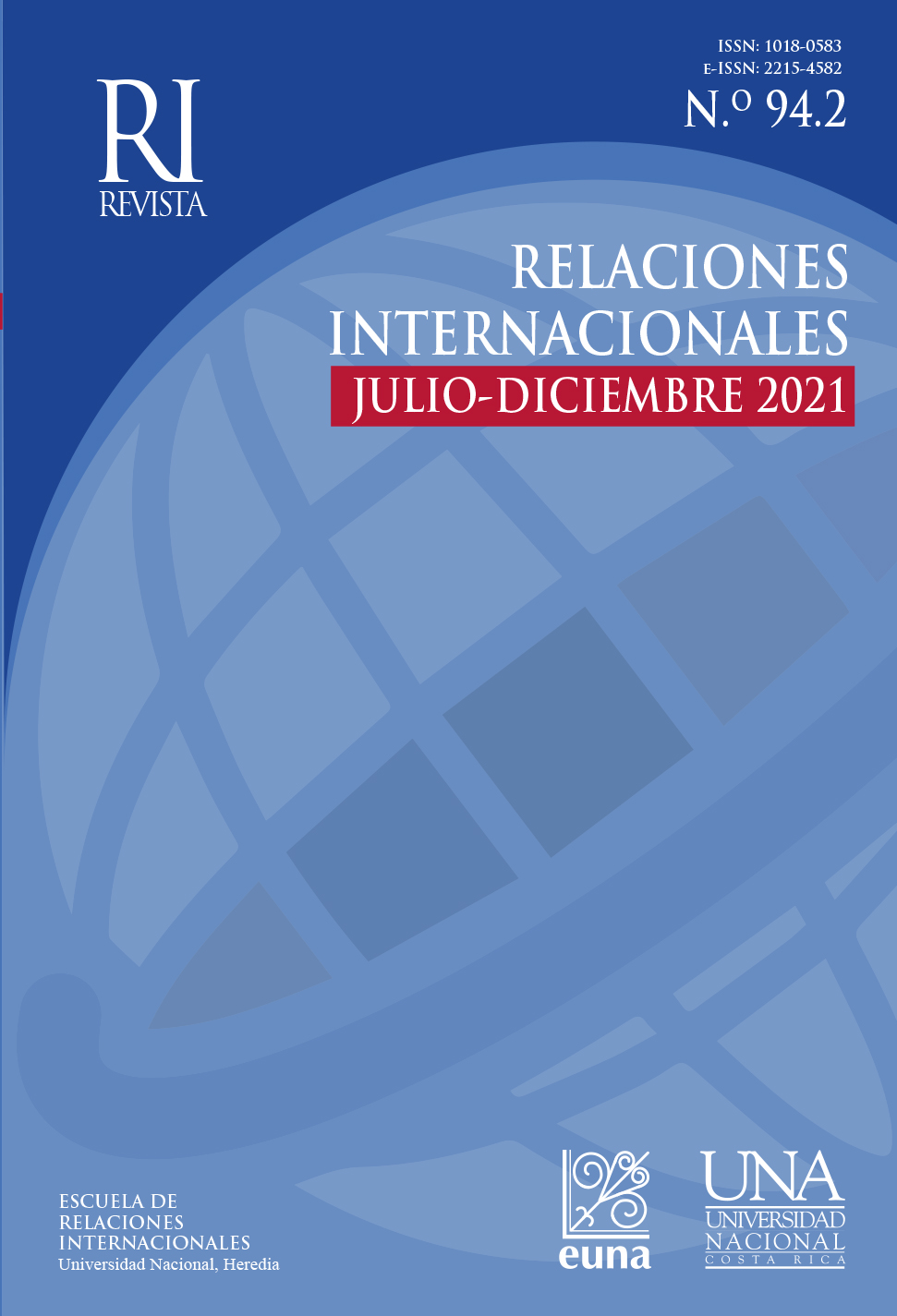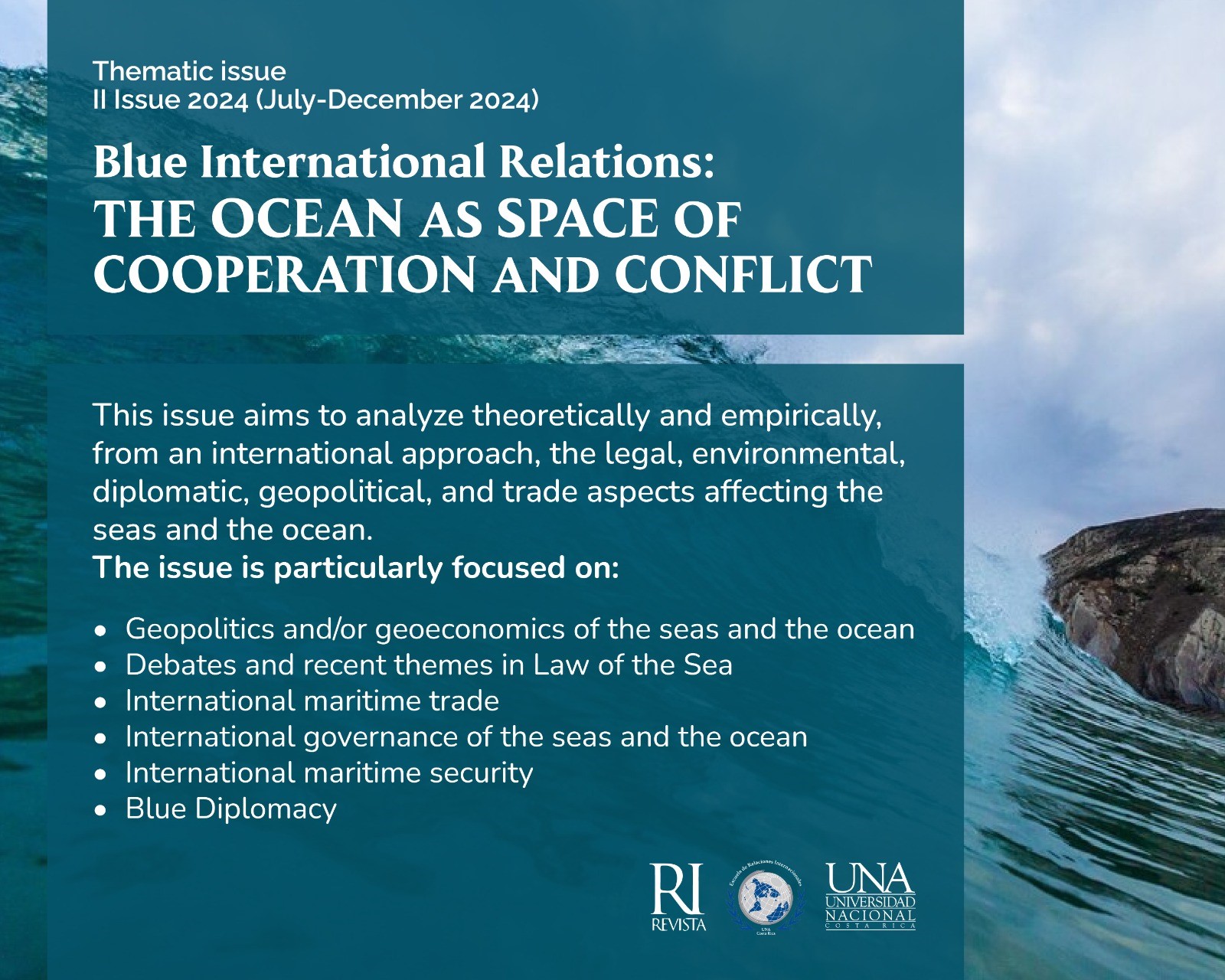The bicentenary of Independence as a critical juncture of change in Central America and the contribution of development partners: the case of Spain
DOI:
https://doi.org/10.15359/ri.94-2.3Keywords:
Central America, development, Esquipulas, regional integration, regionalism, SICAAbstract
The Bicentenary of the Central America independence matches with a critical juncture in the region, fuelled by internal and global factors. After forty years of inspiring national and regional development strategies, the plan derived from the Esquipulas Agreements has already delivered all it could. It has significantly improved the region's welfare, but it has broken neither dependence on special interests nor has it find solutions to the structural problems of the region, worsened by the Great recession and the pandemic. The regional framework seems to be once again the most appropriate place to define new consensus to challenge the crisis and face the future. Spain is a key partner of Central America and has a role to play in generating consensus and strengthening the regional dimension.
References
Acemoglu, D. y Robinson A. (2012). ¿Por qué fracasan los países? Ediciones Deusto.
Acuña Ortega, V. H. (editor). (1993). Historia general de Centroamérica, Volumen IV, Las Repúblicas agroexportadoras, Sociedad Estatal V CentenarioFLACSO, España.
AECID. (2015). 25 años cooperando con América Latina y el Caribe. https://bibliotecadigital.aecid.es/bibliodig/i18n/catalogo_imagenes/grupo.cmd?path=1010272
Bulmer-Thomas, V. (1994). The Economic history of Latin America since independence, Cambrigde University Press, United States of America.
Caldentey del Pozo, P. (2015). Desarrollo económico en Centroamérica: vigencia y revisión de los acuerdos de Esquipulas. Icade. Revista De La Facultad De Derecho, (96), 169-199. https://doi.org/10.14422/icade.i96.y2015.007
Caldentey, P. (2021). Sesenta años de integración económica en Centroamérica: avances y retos. BCIE/SIECA/CMCA. Centroamérica.
Caldentey, P.; Estepa, L. y De la Torre, J. (2021). Central America at the Crossroads: The End of Esquipulas and the Search for a New Consensus. Policy Brief
-5. UNU Institute on Comparative Regional Integration Studies. https://cris.unu.edu/Central%20America%20at%20Crossroads%20Covid%2019%20Coronavirus
Cerezo, V. (2020). Carta por el futuro de la integración centroamericana. Secretaría General del SICA. El Salvador. Disponible en https://www.sica.int/
integracion/2020/carta
Evans, T. (1995). La transformación neoliberal del sector público. Ajuste estructural y sector público en Centroamérica y el Caribe, Latino Editores, Nicaragua.
Fundación ETEA. (2021). Informe de sistematización y conclusiones del Seminario Determinantes del desarrollo de Centroamérica en el marco del proceso de
integración regional y del Acuerdo de Asociación con la UE. https://fundacionetea.org/2021/04/05/seminario-determinantes-del-desarrollo-de-centroamerica-en-el-marco-del-proceso-de-integracion-regional-y-del-acuerdode-asociacion-con-la-ue/.
Levitsky, S., y Ziblatt, D. (2018). Cómo mueren las democracias. Editorial Ariel. España.
Malamud, C., Olivié, I. y Escribano, Gonzalo (2020). Las relaciones España-Amé-
rica Latina en tiempos del Covid-19. Informe 2, septiembre 2020. Real Instituto Elcano.
Martínez, P., J. (editor). (2019). Logros y desafíos de la integración centroamericana. Los aportes de la CEPAL. CEPAL: Santiago de Chile.
Olivié, I. y Pérez, I. (2016). Catorce dilemas de la cooperación española en la nueva
legislatura, ARI, n.º 39, Madrid, Real Instituto Elcano. Disponible en: http://
www.realinstitutoelcano.org/wps/portal/rielcano_es/contenido?WCM_
GLOBAL_CONTEXT=/elcano/elcano_es/zonas_es/ari39-2016-olivie-perez-catorce-dilemas-de-la-cooperacion-espanola-en-la-nueva-legislatura
Pérez B., H. (1993). Historia general de Centroamérica, Volumen III: De la ilustración al liberalismo, Sociedad estatal V centenario-FLACSO, España, 292
págs.
Pinto S., J. (1993). Historia general de Centroamérica. Volumen II: El régimen colonial (1524-1750), Sociedad estatal V centenario-FLACSO, España, 383 págs.
Programa Estado de la Nación (2021). Sexto Informe sobre el Estado de la Región
CONARE - PEN, 2021. San José, Costa Rica https://estadonacion.or.cr/
informe/?id=332ae9fc-d7c0-4886-a8cd-b67ea5f0ac38
Ramos R., Marisa (2021). La cooperación española en América Latina ¿Un cambio de ciclo? Documentos de trabajo 51/2021. Fundación Carolina. España
Sánchez-Ancochea, D. y Martí, S. (2014). “Central America´s triple transition and the persistent power of the elite”, pp. 4-22, en Sanchez-Ancochea, D. y Martí, S. (2014), Handbook of Central Americana Governance. Routledge. UK.
Torres-Rivas, E. (2011). Revoluciones sin cambios revolucionarios. Guatemala: F&G editores.
Williamson, J. (2002). Did the Washington Consensus Fail? Outline of speech at the Center for Strategic & International Studies Washington, DC. November 6,
Published
How to Cite
Issue
Section
License

Revista de Relaciones Internacionales por Universidad Nacional de Costa Rica está bajo una Licencia Creative Commons Atribución-NoComercial-SinDerivar 4.0 Internacional








1.png)







3.png)
